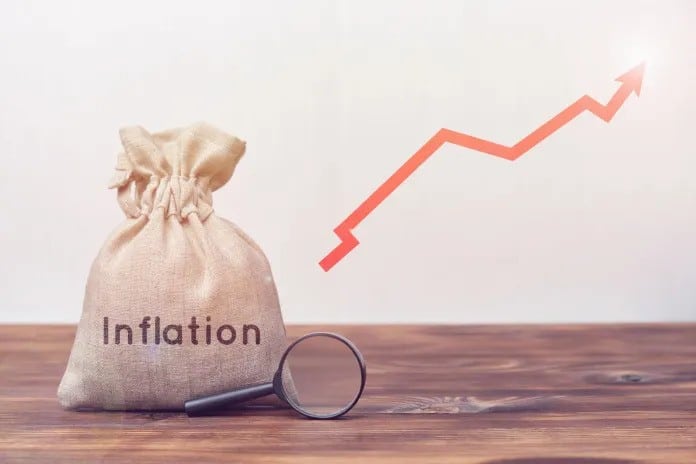The foreign exchange market, often abbreviated as forex, is a vast, global marketplace where currencies are traded. This constant exchange of currencies underpins international trade and investment, and its fluctuations are influenced by a complex web of factors. Among these, economic indicators play a crucial role in shaping the value of currencies and the movement of forex markets. This article delves into how key economic indicators, such as Gross Domestic Product (GDP) and inflation, impact the forex market and influence the decisions of traders and investors.
Understanding the Importance of Economic Indicators
Economic indicators are data points or statistics that reflect the health and performance of a country’s economy. These indicators provide valuable insights into various aspects, including economic growth, employment, inflation, and consumer spending. By analyzing these indicators, investors, businesses, and policymakers can gain a deeper understanding of the current economic climate and make informed decisions.
In the context of the forex market, economic indicators act as crucial signals that influence the demand for and value of a particular currency. When the economic outlook of a country appears strong, it generally leads to increased confidence in its currency, driving its value up. Conversely, a weak economic outlook can lead to a decrease in the currency’s value.
Impact of GDP on Forex Markets
Gross Domestic Product (GDP) is a key economic indicator that measures the total market value of all final goods and services produced within a country’s borders in a given period. In simpler terms, it represents the size and health of a nation’s economy. A strong and growing GDP generally indicates a robust economy with high levels of production and consumption. This, in turn, can lead to increased demand for the country’s exports, potentially attracting foreign investment and increasing the demand for its currency.
For example, if the United States experiences a significant increase in GDP due to booming manufacturing and exports, it can lead to a stronger US dollar. This is because foreign businesses and investors need to purchase US dollars to buy American goods and services, leading to increased demand and potentially pushing the dollar’s value up in the forex market.
However, it’s important to note that GDP is a lagging indicator, meaning it reflects past performance rather than predicting the future. While a strong GDP can positively impact a currency in the short term, it’s crucial to consider other factors like inflation and trade balances for a comprehensive understanding.
Inflation and its Effect on Forex Markets

Inflation refers to the sustained rise in the general level of prices for goods and services in an economy over time. While some degree of inflation is considered healthy, excessively high inflation can erode the purchasing power of a currency, making it less valuable. This devaluation can discourage foreign investment and lead to a decline in the currency’s value in the forex market.
Central banks, which are responsible for maintaining the stability of a country’s financial system, use various tools to manage inflation, including setting interest rates. When inflation rises above desired levels, central banks typically raise interest rates. Higher interest rates can incentivize saving and discourage borrowing, ultimately aiming to slow down economic activity and curb inflation.
In the forex market, an increase in interest rates by a central bank can attract foreign investment seeking higher returns. This increased demand for the currency can lead to its appreciation in value. Conversely, if a central bank lowers interest rates to stimulate economic growth, it can decrease the attractiveness of the currency for foreign investors, potentially leading to its depreciation.
It’s important to remember that the relationship between inflation and exchange rates is complex and not always straightforward. Investors consider various factors, including future expectations of inflation and central bank actions, when making investment decisions in the forex market.
Beyond GDP and Inflation: Other Key Economic Indicators
While GDP and inflation are undoubtedly crucial indicators influencing the forex market, several other economic data points play a significant role:
- Unemployment rate: A low unemployment rate can signal a healthy economy with strong consumer spending, potentially boosting the local currency. Conversely, a high unemployment rate can indicate economic weakness and decrease the currency’s value.
- Trade balance: A country with a trade surplus (exports exceeding imports) can suggest a strong economy, potentially leading to currency appreciation. Conversely, a trade deficit can indicate weaknesses and potentially lead to currency depreciation.
- Current account balance: This broader measure incorporates the trade balance, income from foreign investments, and net transfers. A positive current account balance can be a sign of economic strength, potentially supporting the currency.
Concluding Remarks: A Complex Interplay of Forces
Understanding how economic indicators impact the forex market is crucial for both individual investors and businesses engaged in international trade. While GDP, inflation, and other indicators play a significant role, it’s crucial to remember that the forex market is a complex system influenced by various factors, including political stability, global events, and investor sentiment.
Let’s Manage Your Forex Funds With Fx Pips Guru!
Fx Pips Guru is a forex fund management company managing client’s funds based on monthly profit share. Let’s do Live Chat with our experts.




